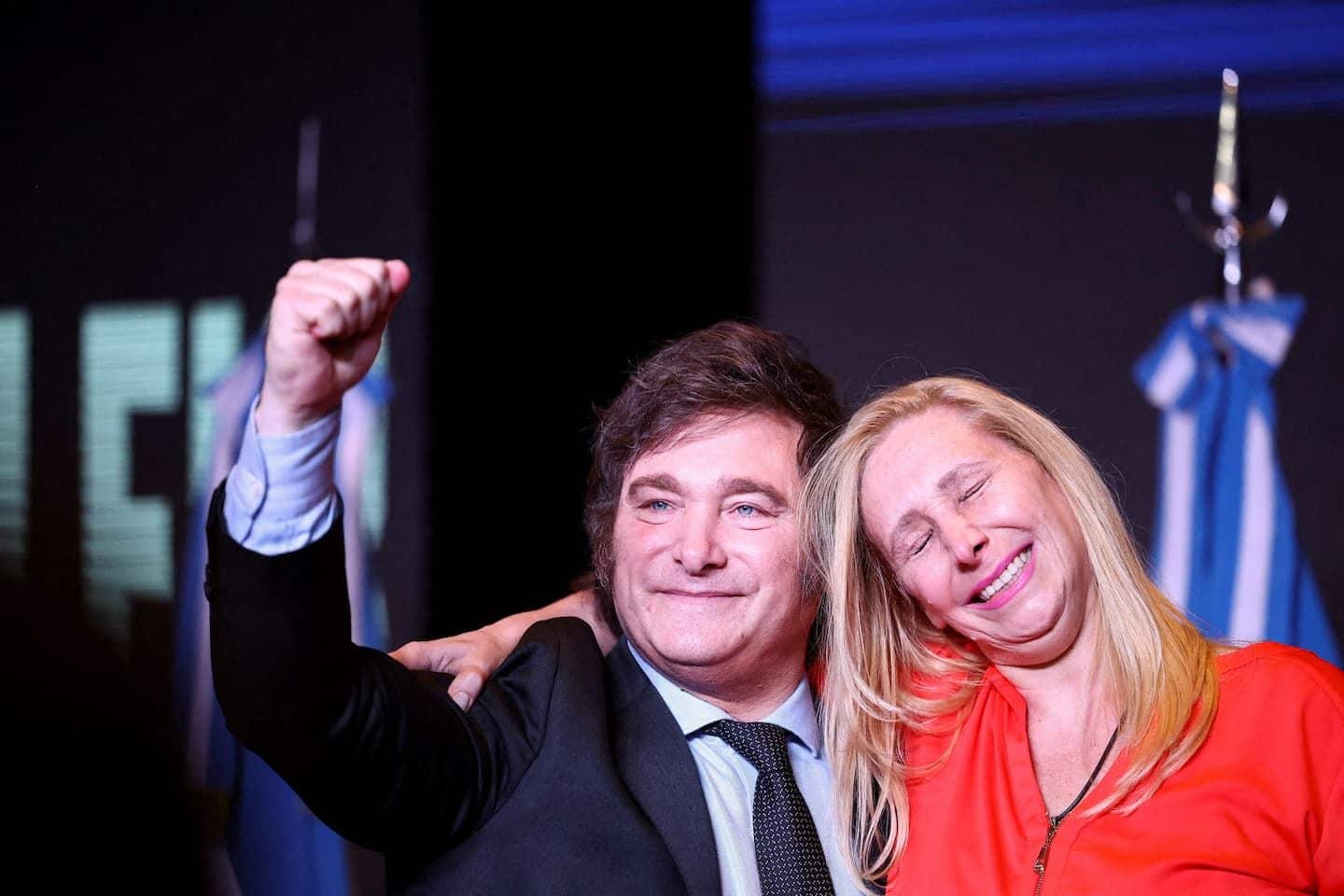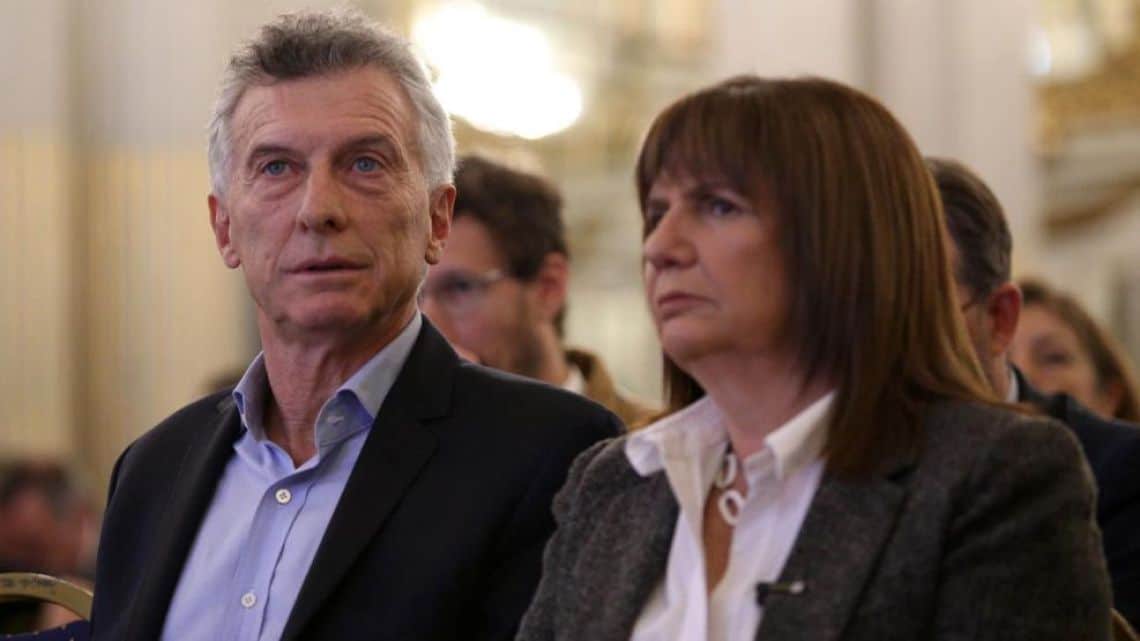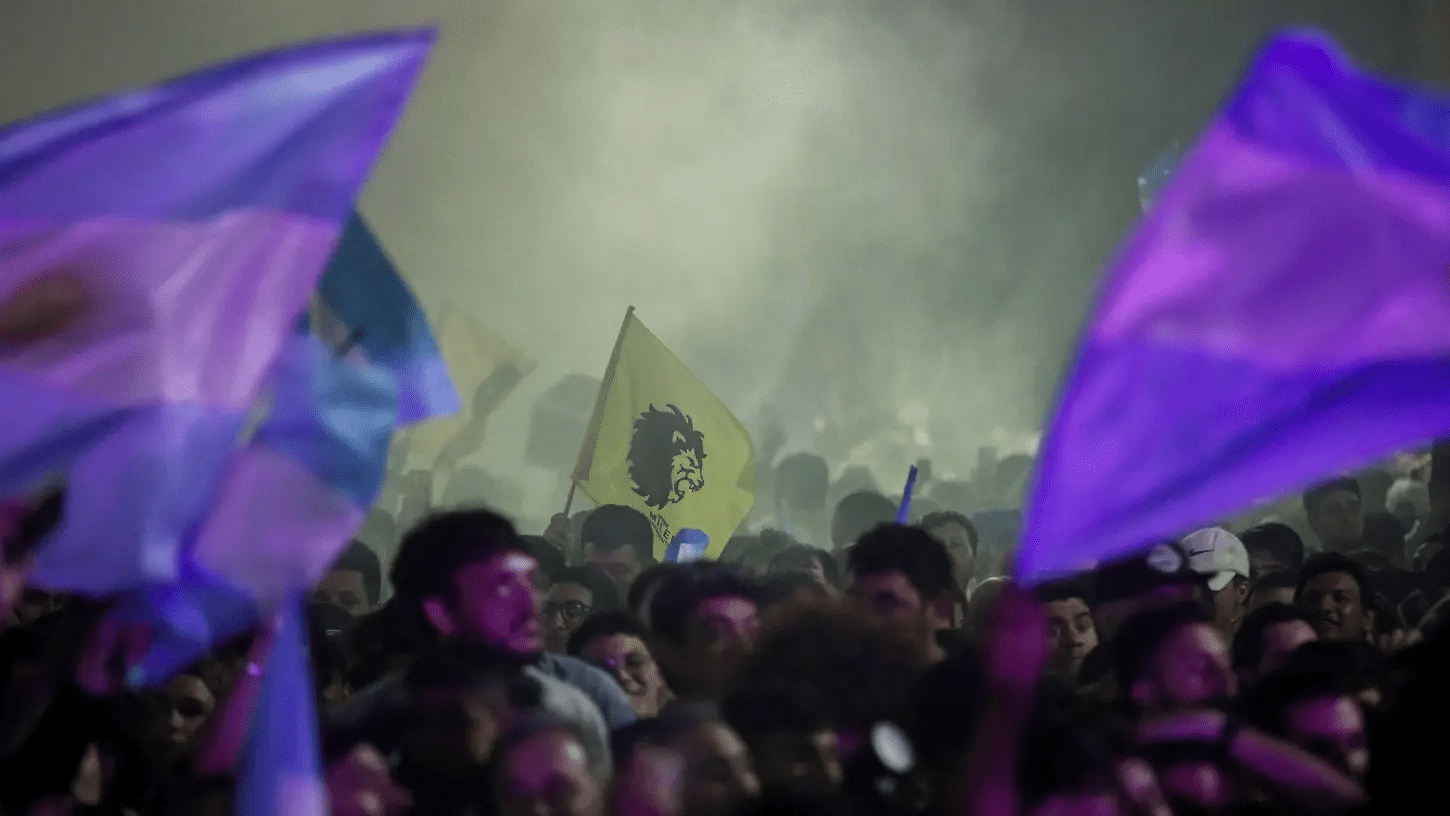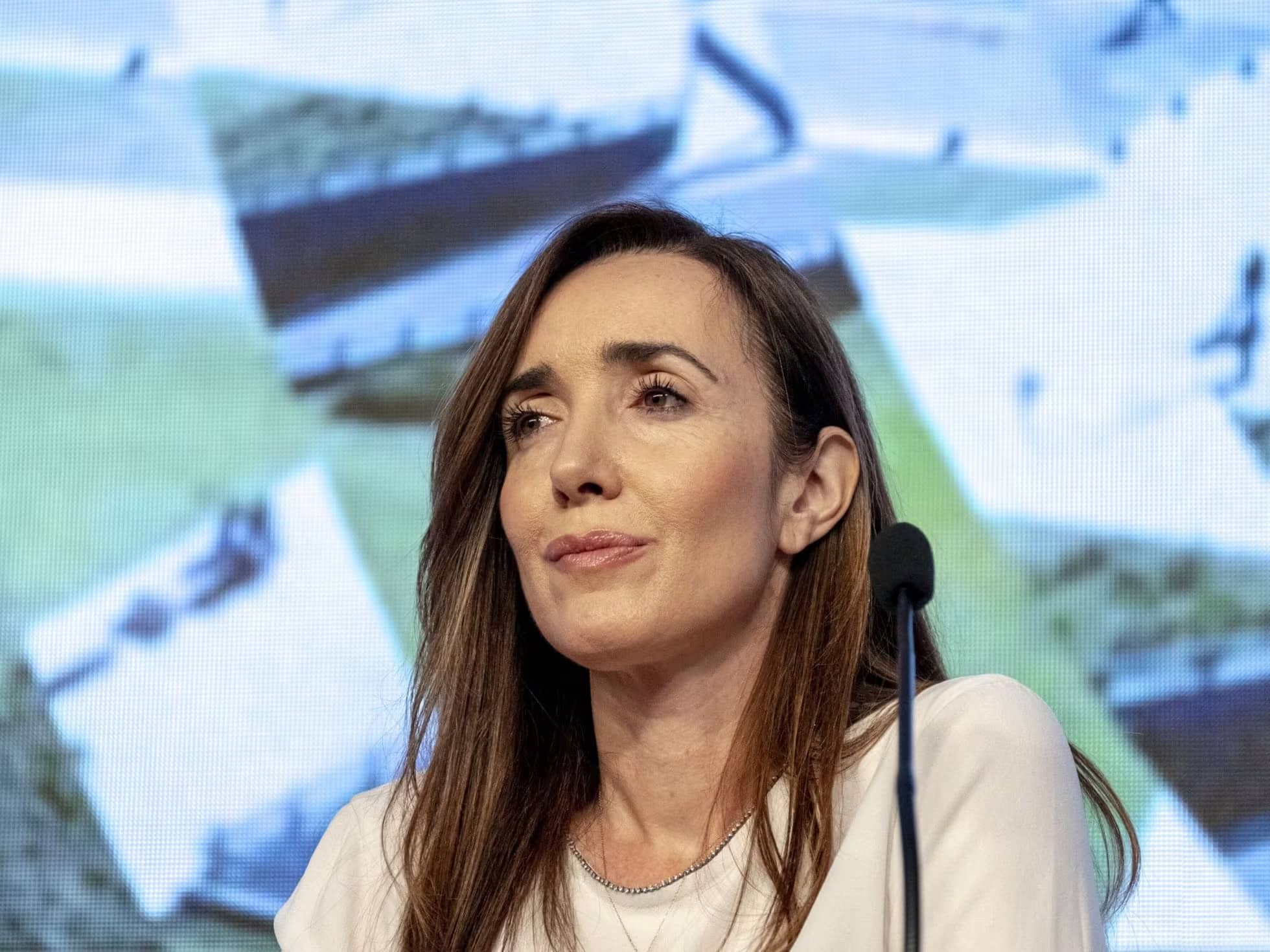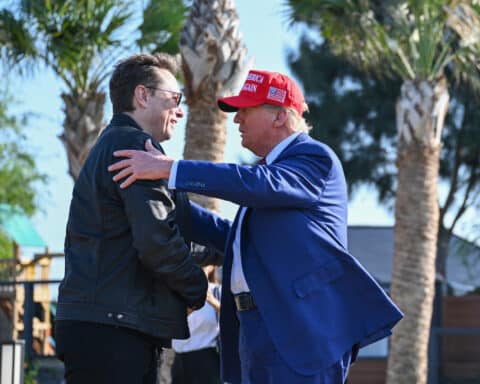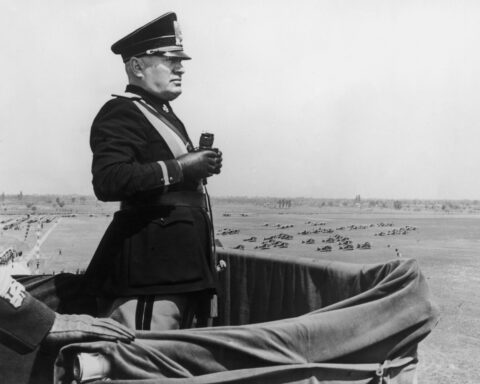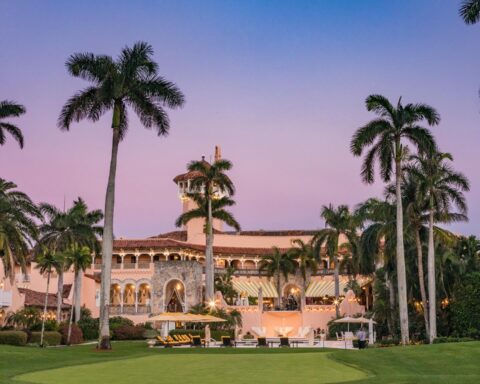Argentina’s presidential elections on November 19 ended in a landslide victory for far-right candidate Javier Milei, with 55.7% of the vote. This surprise marks a massive rejection of the Peronist government and the dominant political class, against a backdrop of acute economic crisis. Milei’s radical ideas appealed to a section of the population, while concerns persist about the implementation of his program.
Argentina’s pollsters, who had predicted a close second round, were wrong. Javier Milei, the far-right presidential candidate, won a landslide victory with 55.7% of the vote on Sunday, November 19, over Sergio Massa, the Peronist candidate and outgoing economy minister. “This is a historic night for Argentina”, said the new president.
This landslide victory is interpreted as an unequivocal rejection of the Peronist government and, more broadly, of the political class that has dominated power in recent years. Against the backdrop of a persistent economic crisis, marked by 143% inflation, successive devaluations and the constant threat of default, Argentines opted for a resolutely new political path.
“Gone is the impoverishing model of the caste, today we adopt the model of freedom, to once again become a world power”, commented the anti-system candidate.
Aged 53, Javier Milei appeared on the political scene two years ago as a Buenos Aires deputy. Having made a career as an economist, he was a frequent guest on television and was appreciated for his impassioned statements and on-camera tantrums. At his rallies, he frequently proclaimed, “I am the lion, I am the king.”
His entry into politics was supported by Sergio Massa himself, whose entourage financed his party, La Liberté Avance (LLA). Massa’s aim was to thwart the candidacy of Patricia Bullrich of former president Mauricio Macri’s right-wing party, who came third in the first round. Massa hoped that Javier Milei’s exuberance and provocations would prevent Mauricio Macri from supporting the Libertarian candidate. However, his maneuver backfired, as on the evening of the first round, Patricia Bullrich and Mauricio Macri threw their support behind Javier Milei, making possible the victory of the man who only a few months ago was regarded as a marginal and implausible candidate.
Controversial program
Javier Milei’s radical program is based on the reduction of state intervention and the privatization of public enterprises. He has promised to abolish several ministries, including Health, Education, Social Affairs and Women’s Rights, so that the private sector can take charge of health and education, and to abolish welfare benefits in order to restore the state’s accounts.
His flagship measure is to “chainsaw” the central bank, abandon the Argentine peso and dollarize the economy to combat inflation. He has also promised to reverse the law authorizing abortion adopted in 2020. Javier Milei has gradually gained influence in the political debate by proposing a radical solution to the crisis: dismantle the state, which he considers corrupt and incompetent. This has won him the support of the middle classes and young people, as well as the poorest and most affluent members of society.
To implement his promises, the new president will need to find allies. With only 38 LLA deputies out of 257, the new Argentine president will probably have to join forces with deputies from the right-wing coalition to govern. He will also have to rebuild relations with key countries for which he has had harsh words, notably Lula’s Brazil and China, Argentina’s two biggest trading partners. “I will not do business with communists. I am a defender of freedom, peace and democracy”, declared Javier Milei, for whom his allies are “the United States, Israel and the free world”.
Right-wing support
Throughout Argentina, Milei’s supporters expressed their joy in the streets, waving Argentinian flags adorned with a roaring yellow lion on a black background, one of the libertarian economist’s emblems during the election campaign. After his victory, Javier Milei addressed his supporters gathered at his campaign headquarters in Buenos Aires. After thanking his sister Karina, whom he calls “la jefa” (the leader), his voters, and ex-president Mauricio Macri, who supported him unreservedly between the two rounds, he proclaimed “the end of Argentine decadence”, along with his ritual “Viva la liberta, carajo!” (“Long live freedom, damn it!”).
Overseas, reactions were swift. “I’m very proud of you. You will transform your country and make Argentina great again,” wrote Donald Trump on his Truth Social network, before the official results were published.
“Congratulations to the Argentine people on the victory of Javier Milei. Hope shines again in South America,” commented former Brazilian president Jair Bolsonaro (2019-2022).
The United States “congratulates Argentina’s President-elect Javier Milei on his victory”, said Antony Blinken, head of US diplomacy, praising “the high turnout and peaceful conduct of the election”.
Deep concern
The defeat was a bitter one for the Peronist camp. Sergio Massa, the Minister for the Economy, who had succeeded in arousing unanimity, created a surprise by achieving a good score in the first round. Calm and poised, he had seemed to gain the upper hand over Javier Milei in the debate between them a week ago. Minister of the Economy for just over a year, he had managed to soften the sad economic record of the outgoing government by urging Argentines not to “jump into the void” by entrusting the country’s reins to a candidate intent on dismantling the state.
Similarly, many Argentines rallied against Javier Milei in the name of democracy and respect for human rights, frightened by the statements of the now-elected Vice-President, Victoria Villarruel, who proposes a reactionary rereading of Argentina’s recent history. Forty years after the return to democracy, she wishes to rehabilitate the leaders of the military dictatorship (1976-1982) convicted of crimes against humanity, and denies the figure of 30,000 people who disappeared during this period.
On the other hand, the dollarization of the economy, the program’s flagship measure for drying up inflation, raises questions. The Milei camp intends to use the dollars that Argentines have been saving for years, the country being “third in the world in the quantity of physical dollars” held. But with the official exchange rate considered unreal (369 pesos to the dollar), “things could get out of control” between now and the December 10 inauguration, according to analyst Ana Iparraguirre of GBAO Stratégies. “A period of instability is opening up”, which could lead to devaluation or increased inflation.
Read also>ISRAEL ON THE VERGE OF LOSING THE IMAGE BATTLE
Featured photo : ©Press









